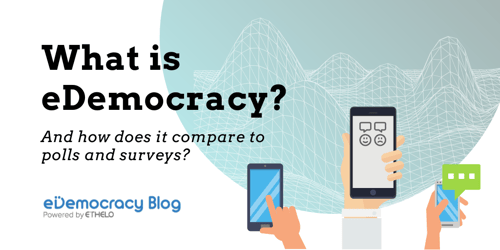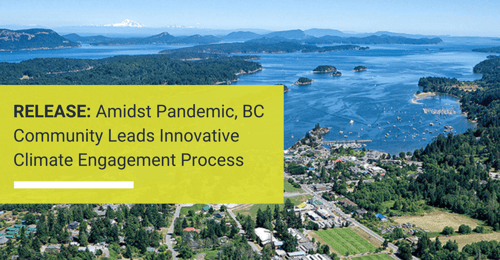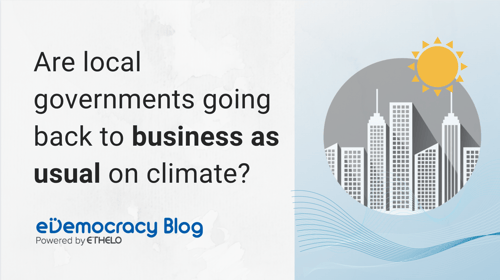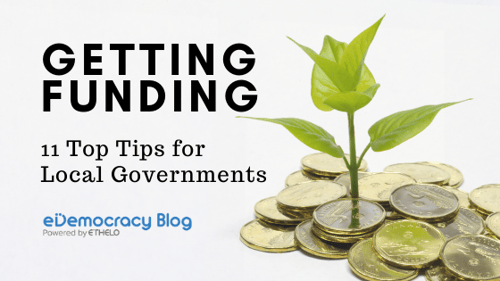This blog is part of a series of the top questions that came out of Ethelo eDemocracy's recent Webinar, Top Ten Questions About Carbon Budgets and Public Engagement, where we discussed how governments can better engage their residents in GHG reduction strategies.
We often hear about the concept of a ‘carbon budget’ in global terms, as the amount of CO2 that the world has left to emit before it exceeds 2 degrees of warming (by the way, it's 1,700 gigatons). It's an important idea, but thinking on a global scale isn't always as tangible as we need it to be - what does a number like that mean for individual communities, anyway? Since cities have some of the best opportunities for tackling the climate emergency, applying their own carbon budget to every-day municipal processes can have a tremendous impact on our collective carbon footprints.
Below, watch the Webinar clip or read the transcript to learn what carbon budgeting means when it's brought down to the local level, and see what a carbon budgeting platform looks like in action.
Top 10 Question: What is a carbon budget? And how does it relate to a GHG reduction strategy?
MEAGAN: This question is one we get a lot from people who are just starting out, just trying to figure out the space, and it can be a little bit confusing because ‘carbon budget’ is a term that people use very differently. We figured it'd be useful to cover it at the beginning of the webinar to give you a little bit more background.
BEN: Yeah. ‘Carbon budgeting’ is really more of a process than a ‘thing’, a verb instead of a noun. The idea is a comprehensive plan for how communities can reach their greenhouse gas reduction targets. Often a carbon budget is seen as the amount of carbon emissions that you're allowing to be released from a particular community. That could be a global community, a state or province or city. Whatever size of community you're talking about, it’s really just having an inventory of your overall amount of emissions and then some amount [you're allowing to be released]. So we’re focusing on the part where you're trying to reduce your emissions, by using the carbon budgeting process as a methodology for GHG reduction.
I'm not gonna do a full demo today, but just for the sake of [using our platform] to show you what that looks like. The way this shows up in our GHG reduction planning tool (that we call our ‘carbon budget platform’), is the this little panel you see at the top here.
.png?width=1920&name=Untitled%20design%20(7).png)
That's basically a representation of the total greenhouse gas inventory, the annual amount of greenhouse gases that are released in a particular jurisdiction. In this case, it's a city that releases about 230,000 tonnes per year. They're trying to cut that annual level of emissions down in half in ten years. So the slide bar to the right is the goal you're trying to reach; all of these different options on the left are steps that you take towards hitting that goal.
Really the point is just using GHG accounting principles and applying that to [municipal] decisions that are being made. And that doesn't have to necessarily just relate to an overall GHG reduction plan. We're also trying to incorporate this thinking into infrastructure projects, policy design projects, all kinds of engagement that communities do, [which are] all the existing templates that Ethelo has had for many years… we’re basically adding a layer of GHG reduction to any number of different types of decisions that you might be making. So that’s really what we mean by carbon budgeting when we're talking about it.
ANDREA: When people do Google searches and look at overall carbon budgeting across the media, you see a lot of ‘carbon budgeting’ as meaning something that belongs to the world as opposed to communities. So we're taking this concept and basically just putting it to a local level.
-----
Ethelo’s eDemocracy Carbon Budget platform is a comprehensive engagement and planning solution for communities to plan how they will reach their greenhouse gas (GHG) reduction targets. Our goal is to provide a decision making process that helps to nurture and cultivate the social license that makes meaningful climate action possible.
You can learn more about the Carbon Budget platform here or fill out the form below to watch a live demo.




